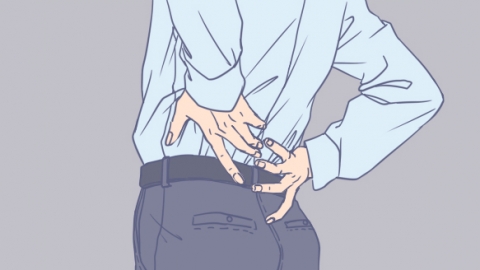What causes weakness in the right leg and uncoordinated walking?
Under normal circumstances, the main causes of weakness in the right leg and uncoordinated walking include overexertion, poor posture, lumbar disc herniation, insufficient cerebral blood supply, and knee meniscus injury. If discomfort occurs, it is recommended to seek timely medical evaluation and treatment at a正规 hospital. Detailed analysis is as follows:
1. Overexertion
After prolonged standing or intense physical activity, the muscles in the right leg may become fatigued, leading to lactic acid buildup and reduced muscle strength, resulting in weakness and uncoordinated gait. To alleviate this, reduce weight-bearing on the right leg, elevate it during rest, gently massage the leg muscles, replenish electrolytes appropriately, and avoid strenuous exercise in the short term.

2. Poor Posture
Long-term uneven loading, such as consistently favoring one side, can cause sustained tension in the right leg muscles and uneven joint stress, impairing movement coordination and causing leg weakness. Correct sitting posture, avoid prolonged unilateral loading, perform daily leg stretching exercises, and promote leg blood circulation.
3. Lumbar Disc Herniation
A herniated lumbar disc may compress the right nerve root, disrupting nerve conduction and causing loss of neural control over the right leg muscles, leading to weakness, uncoordinated walking, and associated lower back and leg pain. Under medical guidance, medications such as mecobalamin tablets, ibuprofen sustained-release capsules, and eperisone hydrochloride tablets may be used. Wearing a lumbar support brace is also recommended. In severe cases, surgical removal of the herniated disc nucleus (discectomy) may be necessary.
4. Insufficient Cerebral Blood Supply
Narrowing or spasm of cerebral blood vessels reduces blood flow, impairing motor center function, which leads to decreased muscle strength and coordination in the right leg, often accompanied by dizziness and fatigue. Under medical supervision, medications such as enteric-coated aspirin tablets, ginkgo leaf extract tablets, and nimodipine tablets may be prescribed. Improving sleep habits and avoiding late nights are recommended. In severe cases, cerebral vascular stent placement may be required.
5. Knee Meniscus Injury
Tear in the knee meniscus results in uneven joint loading when the right leg exerts force, causing pain and weakness that affect walking coordination, often accompanied by joint clicking or popping. Under medical guidance, medications such as celecoxib capsules, diclofenac sodium enteric-coated tablets, and glucosamine sulfate capsules may be used. Wearing a knee brace is advised, and in severe cases, arthroscopic meniscus repair surgery may be necessary.
In daily life, avoid overexertion and maintain proper posture; strengthen leg muscle exercises; have regular check-ups for the lumbar spine and knee joints; rest promptly if symptoms like dizziness or limb weakness occur, and avoid going out alone; follow medical advice for treatment and schedule regular follow-up evaluations to monitor recovery.




